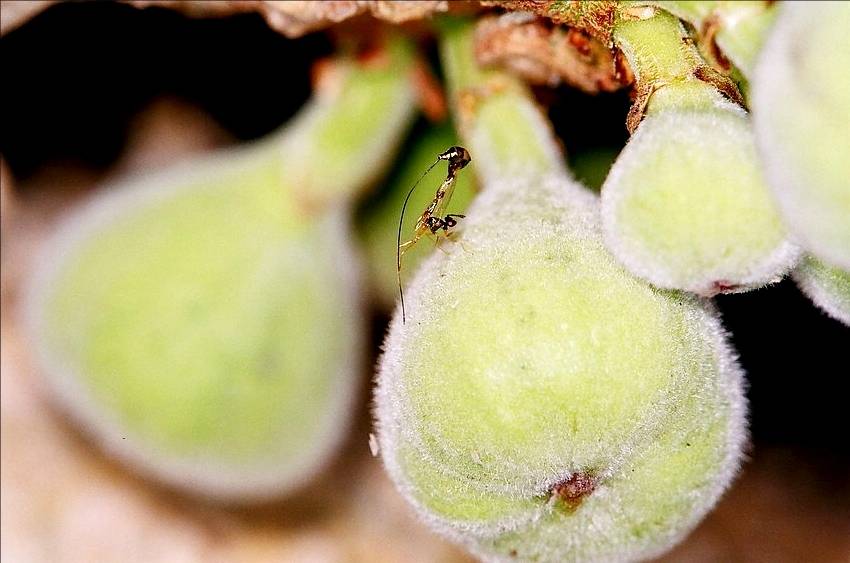Study by Pratibha Yadav and Renee Borges shows that insects can smell with their ovipositors
Mon, 2017-08-14 14:30
The egg laying organ of insects, their ovipositor, is usually believed to only taste via chemical receptors. A recent study by CES PhD student Pratibha Yadav and Prof. Renee Borges shows that insect ovipositor can also sense smell.
This phenomenon was demonstrated in parasitic wasps associated with Ficus racemosa where ovipositors, as slender as a human hair, drill through the fig and act as a guiding probe to locate highly specific egg-laying sites hidden inside. Experiments showed that the wasps responded to carbon dioxide released by their respiring host larvae. This is first report of an insect ovipositor responding to carbon dioxide gas.

This shows that insects could use their ovipositors as olfactory sensors to evaluate ecologically relevant stimuli for egg laying. Authors suggest that further investigations on the sensory nature of ovipositors can provide designs for development of ovipositor inspired micro-chemosensors.
This study was published in the Journal of Experimental Biology: http://jeb.biologists.org/content/220/9/1554
This article was selected as highlighted article and featured in JEB inside :
http://jeb.biologists.org/content/220/9/1543.1
Links for some of the media coverage :
https://researchmatters.in/article/second-nose-scientists-decipher-uniqu...
https://thewire.in/135822/meet-wasp-sniffs-bum/
https://phys.org/news/2017-05-parasitic-fig-wasp-hypodermic-egg.html
https://www.inverse.com/article/31143-fig-wasp-sniff-host-butt
